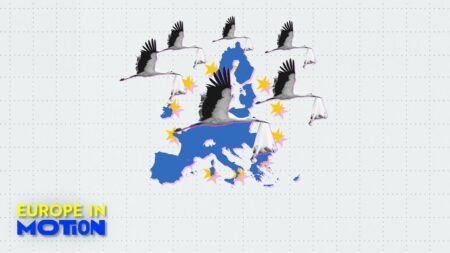The European Commission has no intention to “make enemies” with the implementation of its digital regulation, the European Commissioner for competition Teresa Ribera said on Wednesday during an event in Brussels organised by the Global Competition Law Centre and the College of Europe.
“We want to make friends, not enemies, but we think it is important to respect the law, people, and operators,” the Commissioner said.
The European Commission fined Apple and Meta last Wednesday, 23 April, for violating the Digital Markets Act (DMA), drawing sharp responses from both companies which signalled plans to appeal.
Apple was fined €500 million for restricting developers’ ability to communicate with consumers and direct them to alternative offer channels.
Meta was fined €200 million for its “pay or consent” advertising model, which the Commission argued violates the DMA by forcing users to either consent to targeted advertising or pay a subscription.
The tech giants claim the EU’s regulatory approach is discriminatory, and the regulation has become embroiled in the trade tensions between Brussels and Washington.
Ribera said that the Commission does not aim to escalate intercontinental tensions.
“Enforcing our competition in tools and regulation in digital markets is key to ensure Big Tech plays fairly. Without it, smaller companies cannot compete, cannot innovate,” Ribera said.
She said that fines are a “last resort” as the scope of DMA is to create a “culture of compliance” through dialogue, citing cases involving Outlook and Booking.com, where fines were avoided through compliance plans.
“Last week, thanks to constructive dialogue and changes implemented by Outlook, we also closed the investigation into Outlook’s user choice. As a result, consumers in the European Union now have better options for selecting their default browser, can change several default settings for calls, messaging, keyboards, and can uninstall various pre-installed apps, such as the App Store and Sapphire Interline process,” the Commissioner said.
Ribera cited the investigation into Booking.com as a second example, which ultimately led to Booking.com no longer preventing hotels from offering cheaper products on other websites.
EU merger laws
Ribera also outlined the direction of the European Commission on EU merger rules.
She said that while merger control rules are designed to maintain global competitiveness, the EU will seek to engage with calls for new European champions.
EU competitiveness report of former Italian Prime Minister Mario Draghi touted the need to curb genuinely harmful mergers, while avoiding obstacles that could hinder the emergence of ‘European champions’ capable of competing on a global scale.
The EU executive is starting to explore ways of moving in this direction.
“We support mergers that enhance Europe’s global position and truly contribute to innovation, technological progress,” the Commissioner said.
“We heard European champions, but we don’t let players concentrate at any cost, not at the expense of competition,” Ribera said.
“This is why we intend to revise our guidelines for assessing both horizontal and conglomerate mergers so that innovation, resilience, and investment intensity of competition in certain strategic sectors are given adequate weight in light of the European economy’s acute needs,” the Commissioner said.
In the coming weeks, the European Commission will have a wide consultation on the subject with stakeholders and the industry sector.
Read the full article here
















